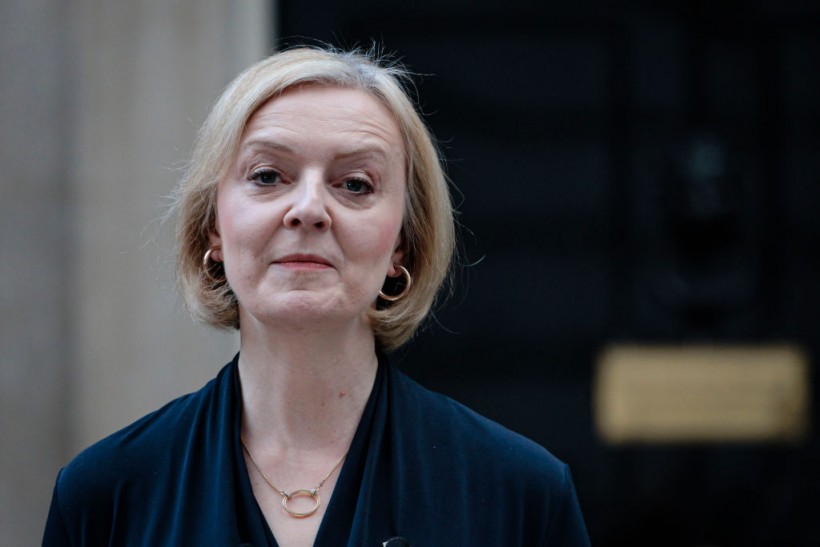
(Photo : Rob Pinney/Getty Images)
Truss admitted that she could not fulfil her promises after losing the confidence of the Conservative Party amid her divisive economic measures.
British Prime Minister Liz Truss announced her resignation on Thursday, only 44 days after being sworn in, as her plans for the struggling UK economy created a fuss in the financial markets and divided her Conservative Party.
Truss admitted outside her Downing Street office that she could not keep the commitments she made as Conservative leader after losing the confidence of the party.
In front of journalists, Liz Truss said she "cannot deliver the mandate" on which the Conservative Party had elected her as its leader, as per a report from Reuters.
"I have therefore spoken to His Majesty the King to notify him that I am resigning as leader of the Conservative Party," Truss remarked.
Officials from the Conservative Party had convened previously at Downing Street as legislators became louder in their calls for her resignation.
When their plans for substantial unfunded tax cuts destroyed the pound and British bonds, Truss, who was appointed on Sept. 6, was obliged to fire her finance minister and closest political friend, Kwasi Kwarteng, and ditch nearly the entirety of her economic agenda.
Her Conservative Party's approval numbers fell drastically, as did her own.
Wednesday's events added to the impression of turmoil in Westminster as she lost the second of the government's four top senior ministers.
Liz Truss was also mocked when she defended her measures in front of parliament and witnessed lawmakers openly argue about policy.
With the UK economy heading into recession and inflation at a 40-year high, the country's new finance minister, Jeremy Hunt, is currently searching for tens of billions of pounds in expenditure cutbacks to assuage investors and recover Britain's fiscal image.
Controversial Policy Amid UK Economic Turmoil
Liz Truss' finance minister, Kwasi Kwarteng, unveiled a so-called "mini-budget" on September 23, setting off a period of turmoil in UK bond markets as investors reacted negatively to the proposed tax cuts supported by debt, CNBC reported.
Three weeks later, the new finance minister, Jeremy Hunt, rolled back most of the plans.
After Boris Johnson stepped down as UK prime minister on July 7, Truss defeated Rishi Sunak to become the leader of the Conservative Party.
Sunak is a frontrunner to succeed Truss, along with Hunt, Penny Mordaunt, Ben Wallace, and Boris Johnson.
Boris Johnson reportedly considers that his candidacy is in the interest of the UK.
What Happens Next?
The resignation makes the Conservatives' Oct. 31 budget update questionable, but Truss said the leadership transition will guarantee delivery of "fiscal plans."
There will be a leadership election to be completed in the next week.
— Liz Truss (@trussliz) October 20, 2022
This will ensure we remain on a path to deliver our fiscal plans and maintain our country’s economic stability and national security.
I will remain as Prime Minister until a successor has been chosen.
Ms. Truss has announced that a leadership vote will take place next week.
Sir Graham Brady is expected to make a statement outlining the guidelines for the leadership election.
In the history of the United Kingdom, the tenure of Liz Truss as prime minister will be the shortest, according to The Independent.
She has served as prime minister for 44 days so far, which is much less than the 118 days Tory politician George Canning served as prime minister in 1827 before passing away due to illness while in office.
Related Article: Joe Biden Gets Brutally Honest Why Tax Cut Plan of UK Prime Minister Liz Truss Was a Big 'Mistake'








